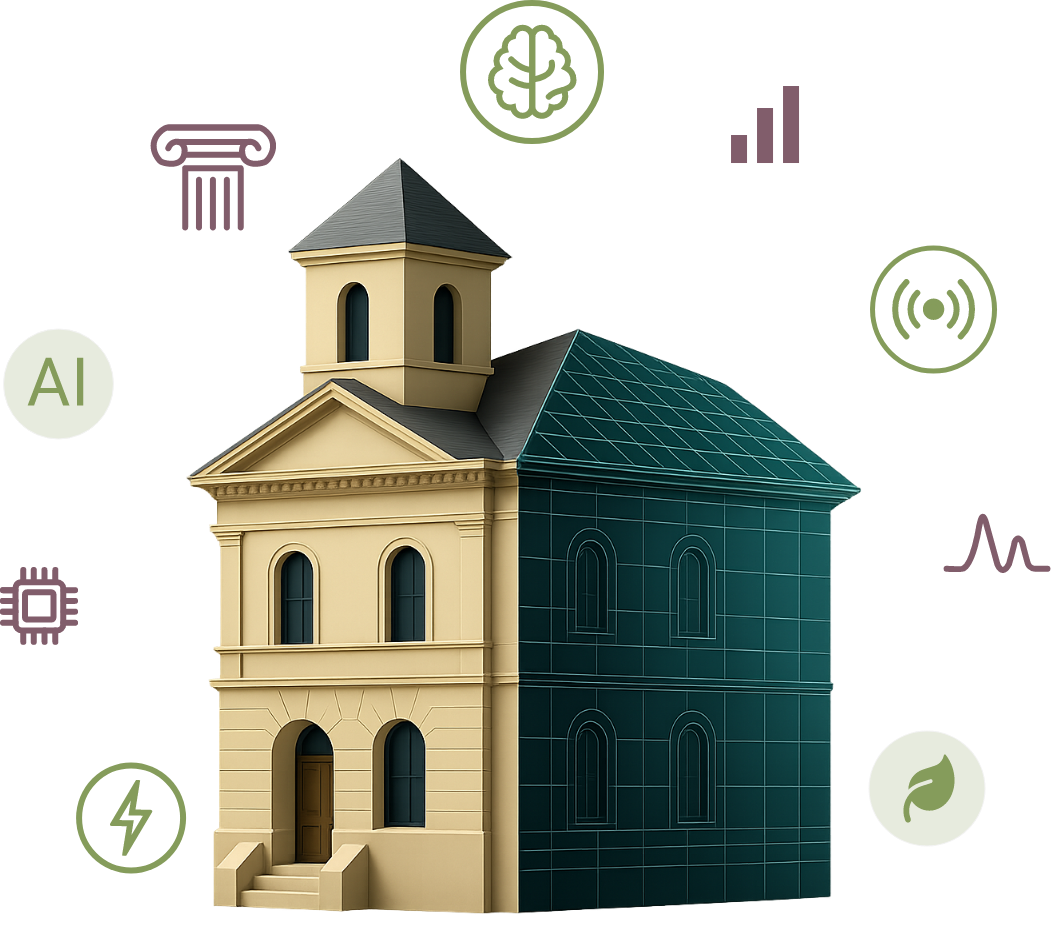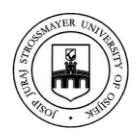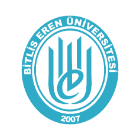A Europe-wide research collaboration combining IoT sensors, machine-learning models and sustainable design to enhance energy performance, climate-adaptation and structural resilience of historic buildings — open-access data and hybrid courses included.

HEIstorical project addresses critical gaps in seismic risk mitigation, environmental
sustainability in historic building preservation and integration of digital tools and AI in higher
education institutions (HEIs).
Innovative strategies for conserving Europe’s architectural heritage by combining traditional methods with AI-driven diagnostics and predictive maintenance.
Using machine learning and IoT-based monitoring to analyze environmental conditions and structural behavior for smarter decision-making in historic buildings.
Sustainable and eco-efficient retrofitting solutions that reduce carbon footprint, optimize energy use, and promote long-term environmental responsibility.
Advanced data modeling and AI-supported simulations to enhance earthquake resistance and minimize structural risks in vulnerable heritage sites.
Our mission is to transform the preservation of historic and heritage buildings by integrating AI, IoT sensor data, and sustainable technologies into higher education research and cross-border collaboration.
Create and validate machine learning models that analyze sensor data to predict structural damage and assess the safety of heritage buildings.
Design eco-efficient retrofitting and energy-saving solutions that maintain cultural authenticity while improving the environmental performance of historic sites.
Develop data-driven seismic risk models and reinforcement guidelines to improve earthquake resistance and ensure long-term building preservation.
Implement hybrid learning modules and international workshops connecting students, academics, and engineers in the field of heritage conservation and digital technologies.
Develop an open-access platform integrating IoT monitoring data, historical documentation, and AI-based analytics for future research and innovation.
Strengthen European networks to advance sustainable heritage preservation through interdisciplinary cooperation and shared digital resources.
The consortium partners will develop and implement a unique model for damage assessment in historical buildings, which incorporates AI through Machine Learning (ML). Data analysis using predictive methods will lead to recommendations for building damage prediction and more importantly, for structural strengthening in order to prevent potential damage and mitigate the risks for buildings with historical value. Students and academic staff will collect on-site data using digital tools, including specially developed application for entering parameters needed for data analysis. All the parameters will be included in an international (freely accessible) database. The database will provide a basis for future research in this field as well as in the field of earthquake protection, both in the member countries of the consortium and possibly beyond. In addition to professors, students will also be involved in the project activities, so that a large number of future engineers can acquire new knowledge and skills and establish contacts with colleagues at home and abroad.

Romania Project Coordinator

Croatia Project Partner

Serbia Project Partner

Turkey Project Partner

Romania Project Partner
Croatia Project Partner
Serbia Project Partner
Turkey Project Partner
Romania Project Partner
Romania Project Coordinator
Stay updated with the latest developments and upcoming activities